Time to diversify rather than demonize our dietary protein sources
October 23, 2023
This blog is by Professors Andrew Salter and John Brameld. Andrew Salter is an Emeritus Professor of Nutritional Biochemistry, School of Biosciences at the University of Nottingham. John Brameld is a Professor of Nutritional Biochemistry at the School of Biosciences, University of Nottingham Global protein consumption trends Consumption of protein of appropriate quality, in terms …
“I guess it’s quite trendy”: New research explores young meat-eaters’ sustainable food consumption habits.
October 17, 2023
This post is by Dr Qian Yang, Assistant Professor in Sensory and Consumer Science and Hannah Ford, PhD student in Sensory and Consumer Science. Consumers are influential in determining the success of new products and future food trends. As the market for sustainable food continues to expand, there is a need to understand how consumers’ …
Fungi alternatives could diversify sustainable sources of protein to feed the world
October 11, 2023
This post is by Professor Paul Dyer, Professor of Fungal Biology at the University of Nottingham. Our food system feeds 8 billion people each day, but this comes at ever increasing environmental costs in terms of land, water, greenhouse gas emissions, and biodiversity loss. With the rising global population and soaring demand for protein, there …
Will meat alternatives ever taste as good as meat?
October 9, 2023
This post is by Professor Ian Fisk, Professor of Flavour Science at the University of Nottingham. When we are asked to think of the flavour of meat, we might come up with its characteristic aroma during cooking. However, the overall flavour that we perceive is very complex and is a mix of multiple sensory attributes; …
Veronica Faith Guwela PhD experience
May 18, 2023
I’d like to share a story of how my love for Agricultural Sciences developed. I was about 12 years old when I accompanied my parents to our family farm to harvest maize. As we were harvesting, I noticed a number of cobs that were affected by maize Smuts. I did not know the name maize …
Disease susceptibility and genes in wheat
January 24, 2023
Last week we explored the ways scientists are working to diversify wheat genes to combat vulnerabilities to disease. This week, PhD candidate Nicola Walter takes us on a deep dive into gametocidal genes – selfish elements that preferentially transmit themselves to new plants by destroying those chromosomes that don’t have the gene. Gametocidal genes Genetic …
Diversity in wheat and the potential solutions
January 16, 2023
Wheat is one of the most essential crops in modern day diets. Alongside rice and soy, wheat is a staple food for many and a fundamental ingredient in many food stuffs. In this blog post, PhD candidate Nicola Walter outlines how diversity in wheat has been affected by generations of breeding, and the different ways …
The legacy of soil surveys
December 5, 2022
December 5 is World Soil Day. According to the UN, the purpose is to ‘focus attention on the importance of healthy soil and to advocate for the sustainable management of soil resources’. In this post, Prof Murray Lark reflects on the history of soil surveys and how they can aid our understanding and practices of …





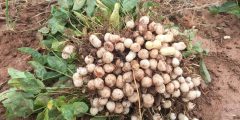

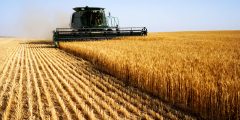
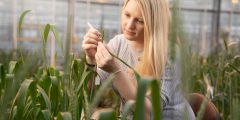
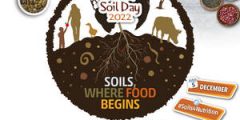
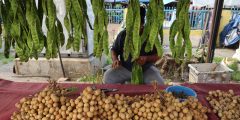
Recent Comments